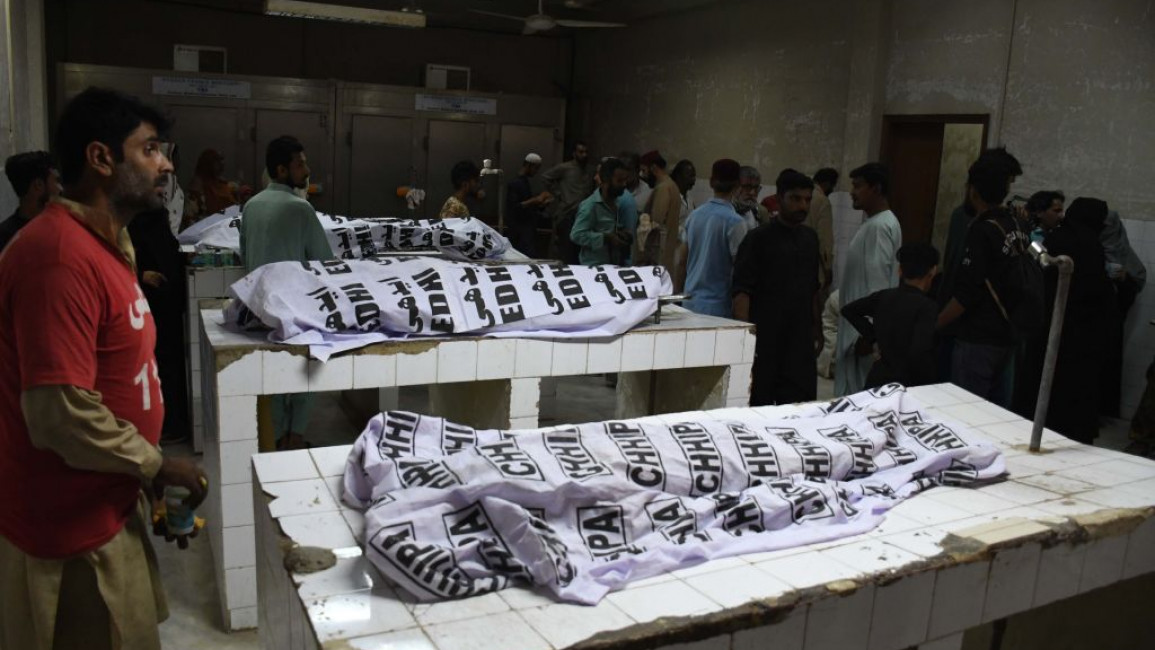At least 9 killed in Pakistan's Karachi after Ramadan donation stampede
At least nine people were killed in a crowd crush in Pakistan's southern city of Karachi Friday as a Ramadan alms donation sparked a stampede in the inflation-hit nation, officials said.
Pakistan has been wracked by economic turmoil for months, with the rupee crumbling and staple food prices shooting up nearly 50 percent as the country battles a balance of payments crisis which has forced it into bail-out talks with the International Monetary Fund (IMF).
Fida Janwari, a senior police officer in western Karachi's Baldia Town neighbourhood, said the stampede happened when needy women with children flocked to a factory distributing alms.
"Panic struck and people started running," he told AFP.
The bodies of six women and three children were brought to the Abbasi Shaheed state hospital, spokesman Muhammad Farraukh said.
An official for the Rescue NGO told AFP an additional two bodies were sent to another hospital in the city.
Asma Ahmed, 30, said her grandmother and niece were among the dead.
"We come every year to the factory for the Zakat," she said, using the Islamic term for alms.
"They started beating the women with clubs and pushing them," Ahmed added. "There was chaos everywhere."
"Why did they call us if they couldn't manage it?" she asked.
Janwari said three factory employees were arrested after failing to inform police of the donation event in order to organise crowd control.
Last week, on the first day of Ramadan -- when Muslims traditionally make donations to the poor -- one person was killed and eight others injured in a stampede for flour in northwestern Pakistan.
Pakistan's finances have been hobbled by decades of financial mismanagement and political chaos. The situation has been exacerbated by the global energy crisis caused by the war in Ukraine, and crippling monsoon floods last year which submerged a third of the country.
The South Asian nation -- home to 220 million -- is deep in debt and must enact tough tax reforms and push up utility prices if it hopes to unlock another tranche of a $6.5 billion IMF bail-out and avoid defaulting.



